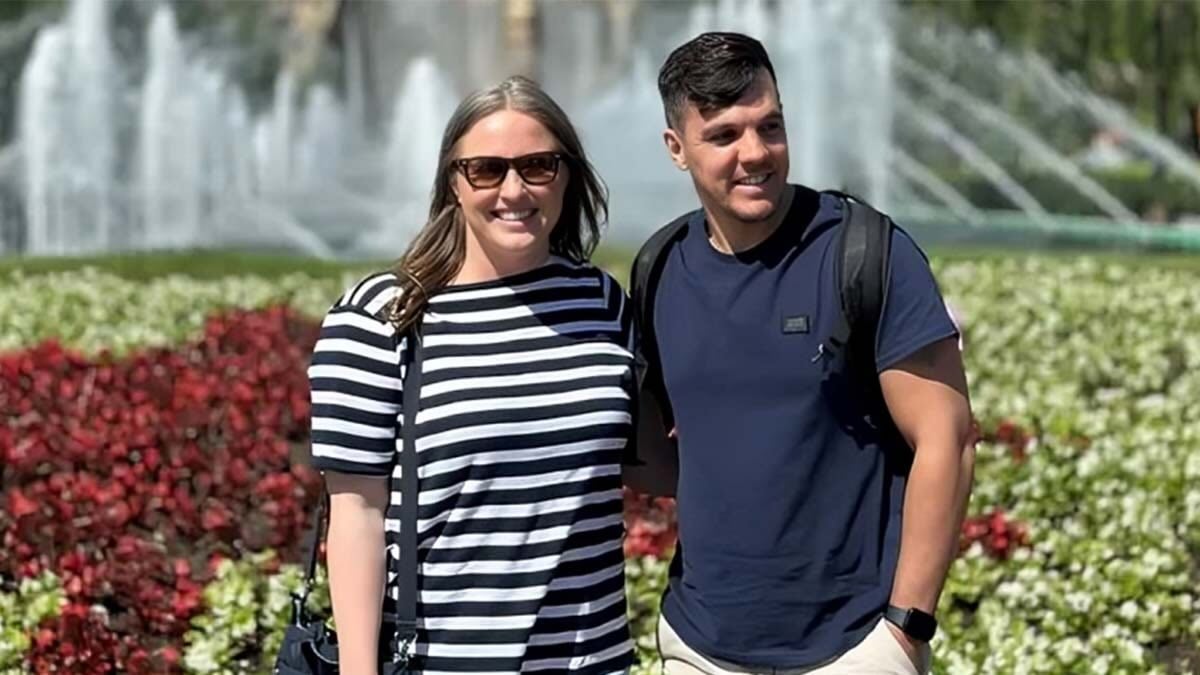Leaving felt daring, staying felt wise, and Portugal seemed like the perfect backdrop for our plans. The sunshine, the rhythm of daily life, and the promise of European stability aligned perfectly. But small hurdles accumulated, and over time, they redirected our choices. We adjusted, we learned, and we kept moving forward. Still, the horizon shifted on its own. One lesson echoed again and again: living abroad can open doors, but it can also stall progress when essential tools remain beyond reach.
Finding our footing in a place that felt like home
In 2012, I left Canada, carrying an EU passport, and landed in Brussels. My marketing career grew there, and a Ph.D. followed. Later, in Rio, I met the man who would become my husband. By 2020, we chose Portugal together, believing it could be the reliable foundation for both work and family.
Language made a difference. We both spoke Portuguese, and Lisbon offered direct connections to Toronto and Rio. I prepared to launch Now in Rio Swim, a swimwear brand, and began studying suppliers. Portugal’s textile expertise, coupled with its steady sun, seemed ideal for both production and storytelling. The plan felt practical and inspiring.
We set down roots. I launched the brand. We bought a fixer-upper near Lisbon with the dream of renovating it slowly. The vision took shape, but also exposed trade-offs. Living abroad wasn’t only about scenery—it was about timing, paperwork, and access. Each decision sharpened that truth.
When living abroad turns process into the real gatekeeper
The deeper we integrated, the heavier the bureaucracy felt. Despite speaking the language, routine tasks took multiple visits and endless documents. Opening a bank account demanded repeated attempts. As a freelancer without a local contract, every proof of income invited more questions. Progress was often stalled behind counters.
Credit was another barrier. Without citizenship or a fixed contract, we were seen as risky. Mortgages were nearly impossible, car loans were denied, and business credit stayed closed to us. Eventually, we managed to get one credit card—in my husband’s name—with a €1,000 limit. That ceiling shaped our options.
We adjusted, cutting costs and slowing growth. But when medical needs arose, the stakes escalated. IVF treatments cost thousands, and that €1,000 cap couldn’t cover the gap. Time mattered. I was 36, and three years had already passed. Family planning collided with financial constraints.
What stalled dreams feel like in real life
Numbers changed everything. IVF required not just money but flexibility—medicine, appointments, and bills that came fast. Loans weren’t available to us in Portugal. Using savings helped, but it wasn’t enough for the timeline we needed. It wasn’t just about budgets anymore; it was about years slipping away.
We still loved the life we had built. The fixer-upper, the growing business, our friendships, the beauty of the country—none of that lost its charm. But delay carried weight. I wanted stability I could count on month by month. By late 2023, I asked my Brazilian husband to consider leaving. He listened. We crunched every number and weighed every form. The choice was bittersweet, but also liberating. We were going home.
How living abroad contrasts with coming home
The shift was immediate. In Canada, tasks that dragged in Portugal resolved quickly. I bought a car. A business loan supported the relaunch of my brand on stronger footing. My husband adjusted fast—within six months, he gained permanent residency, got a driver’s license, and enrolled in government-funded English classes.
Credit access transformed everything. He was approved for a card with a multi-thousand-dollar limit. I received one too, with low interest and a healthy ceiling. Cash flow stabilized. We could invest in stock, spread out payments, and pay them down with ease. Planning no longer felt like a gamble.
Health care moved with us, not against us. Within a year, we had advanced through IVF and I became pregnant with our first child. At one point, I spent thousands on medications in a single week—something only possible because credit limits bridged the gap. This time, the system matched our pace.
What we carried forward, and what we chose to change
Canada is not flawless. I miss Portugal’s light, its food, and its calm. Our fixer-upper taught patience, and my brand still carries stories from both continents. But here, the ease of daily life expands our possibilities. We can plan ahead, access credit, and build family and business side by side.
Portugal wasn’t a failure—it revealed where the limits were. Access is momentum. Before making a big move, check the financial systems. Ask lenders how non-citizens are evaluated. Confirm proof-of-income requirements for freelancers. Research medical timelines and costs. Understand the gatekeepers, because sometimes the process is the real product.
Would I do it again? Possibly—but with a longer runway and a sharper checklist. For us, moving back unlocked what we needed most. We still love Portugal, but now we trust the foundation beneath us. The dream didn’t disappear; it shifted. Life and work finally move in sync, and living abroad taught us how to see that.
What choosing the right base taught us about time
We once imagined Europe would be our forever base. Instead, it gave us lessons we carry daily. Returning home gave us speed, tools, and space to grow. We kept the best parts, and left behind the rest. The next chapter feels lighter. Living abroad remains a teacher we respect—even as we build a future here.
